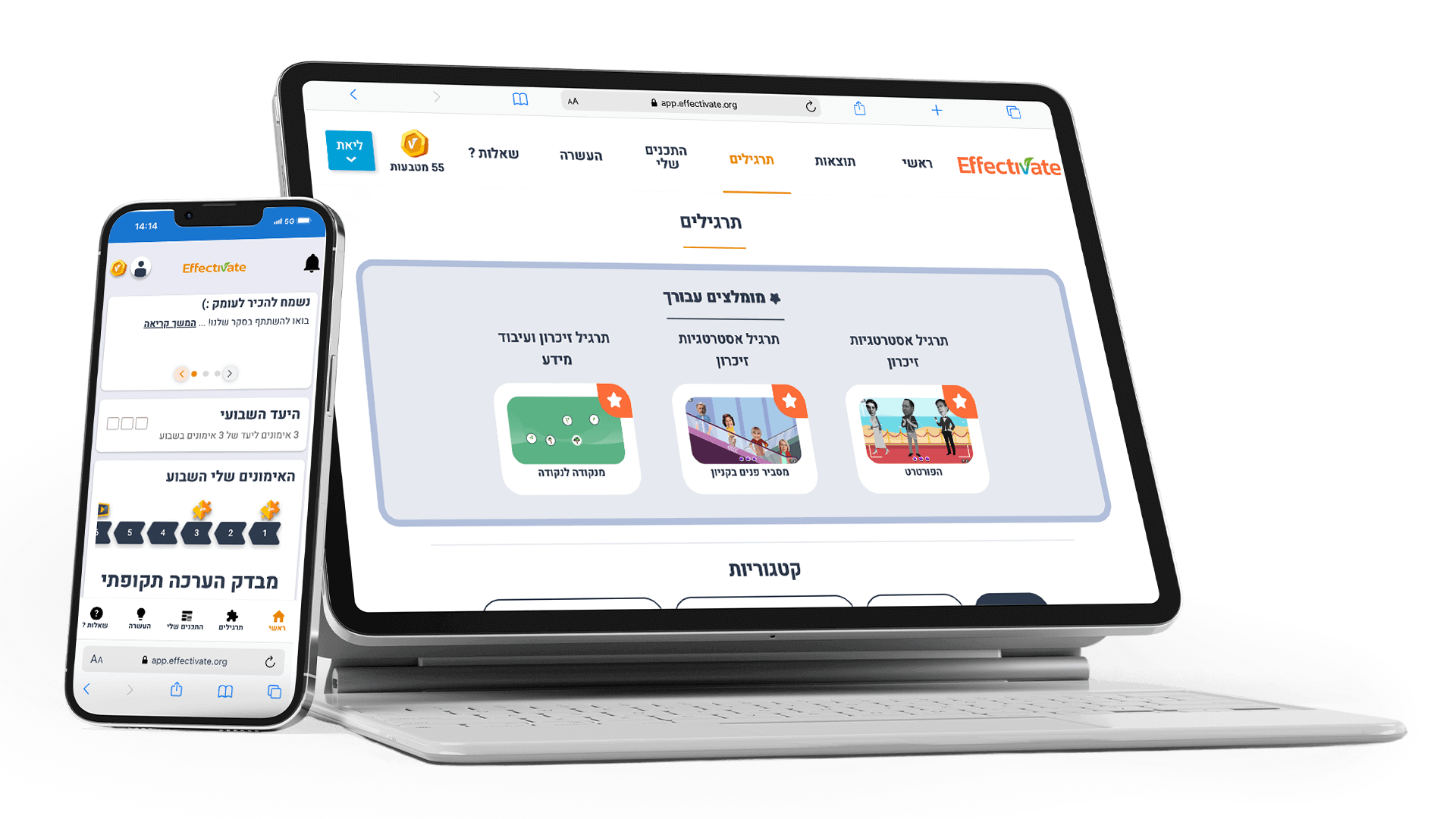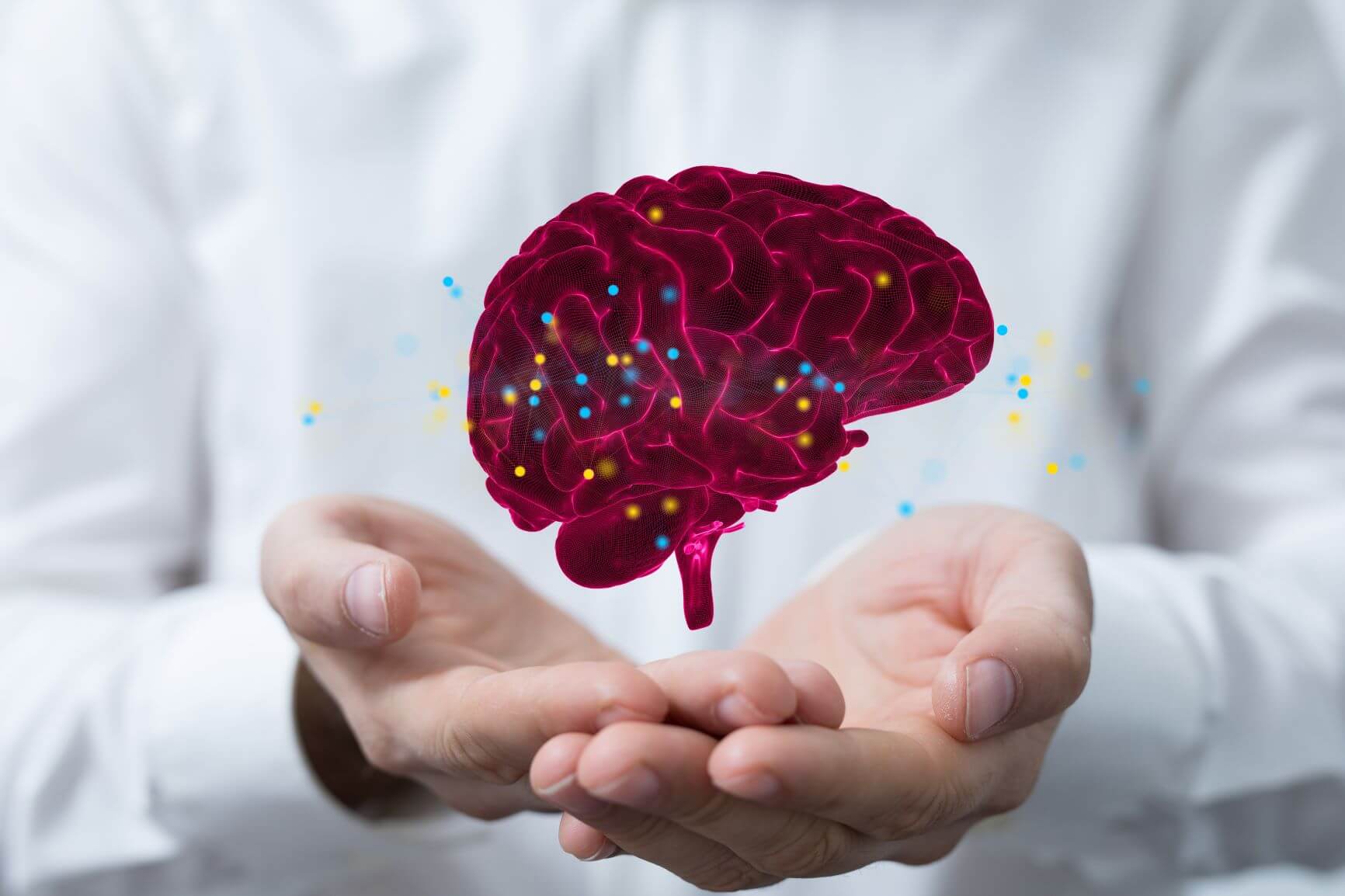What Is Brain Exercises and Training and How Can It Improve Your Memory?
Learning is a physiological process governed by well-established principles. When we learn to play the piano or speak a foreign language, we need persistence, repetition, and consistent practice.
The same applies to the brain. Brain exercise designed for cognitive training can significantly improve memory and other cognitive abilities when practiced regularly.
Repetition is essential for creating long-term learning effects. However, it is important to note that training is inherently temporary: without ongoing practice, skills may diminish over time.
For example, if someone trained to play a Beethoven piece at age 12, without continued practice, they would not play it flawlessly at age 30.
Similarly, physical fitness requires ongoing exercise; simply knowing how to walk does not maintain physical health. The strength of training lies not only in the achievements but in the activation itself.
Discover Effectivate: Brain Training for Sharper Memory >>
How Long Should Brain Exercises Be Practiced?
Research shows that even a few weeks of consistent training, combined with periodic reinforcement, can have measurable effects years later.
While life circumstances vary and may influence outcomes, establishing a habit of daily brain exercises is essential for maintaining cognitive health in older adulthood.
How Does Learning Occur in the Brain?
Scientific studies show that learning is possible at any age, though the pace and method may vary. Learning occurs in two primary stages: expansion and habituation.
- Expansion stage: Behavior improves, gray matter volume increases, new neurons form, neural connections change, and supportive glial cells activate to support these changes.
- Habituation stage: Neural circuits stabilize, consolidating the learning and creating lasting cognitive patterns.
How Can Learning Be Strengthened?
Learning is enhanced when the brain encounters:
- Novel or surprising information
- Mistakes that require correction
- Practice in varied contexts applying learned skills in daily life
- Transfer from one domain to another, e.g., from computer exercises to real-world tasks
Training and outcomes depend on individual starting points, needs, and consistency. The amount and frequency of practice directly influence effectiveness.
How Effectivate Supports Brain Training
Effectivate’s software is designed to train core cognitive abilities essential for daily functioning, including:
- Working memory
- Attention and concentration
- Processing speed
- Information organization
Training exercises target multiple abilities simultaneously, as these functions are interconnected. For example, attention and concentration directly influence memory: if focus is lost, information may be missed and cannot be effectively retained.
Dive Deeper: Get More Memory and Cognitive Tips >>
How to improve your memory – recommended methods >>
Examples of Brain Strengthening Exercises in Effectivate
Double Focus
Strengthens executive and spatial attention. Multiple shapes briefly appear across the screen – most of them identical, except for the central shape and one distinct shape elsewhere.
The user must remember the central shape while simultaneously identifying where the different shape appears.
As levels progress, the number of shapes and spatial complexity increase, training users to efficiently scan and process the entire visual field rather than focusing narrowly on a single area.
Swim with the Current
Fish appear on the screen, and the user responds based on their color: blue fish are responded to according to movement, orange fish according to head direction.
This exercise trains cognitive flexibility (shifting focus between tasks) and response inhibition (stopping inappropriate actions).
The Missing Piece
Cubes containing numbers, letters, or shapes appear briefly. Later, one cube is removed, and the user must identify the missing item.
This strengthens associative memory and working memory holding and manipulating information during tasks.
Advanced Spatial Attention Exercise
Target balls of specific colors appear on a colored surface. Users must respond only to matching colors while ignoring distractions like fireworks or glowing objects. This trains spatial attention and executive control.
Why Brain Training Matters
Creating long-term cognitive change is challenging because the brain naturally resists change, and anxiety or insecurity can hinder progress.
Older adults may feel more vulnerable, making new habits harder to adopt. Nevertheless, training consistently – even later in life – can build cognitive reserve, improving memory, attention, and overall functioning.
Practice should be integrated into daily life:
- Learning a new language
- Practicing piano or musical instruments
- Engaging in strategic games, math puzzles, or martial arts
The principle is simple: train consistently, challenge yourself, and build brain habits to maximize cognitive reserve and maintain independence in later life.
Take Action with Effectivate
Effectivate offers scientifically designed brain exercises that help strengthen memory, attention, processing speed, and executive functions.
Training with Effectivate is like a gym for the brain: daily practice can lead to measurable improvements in cognition and quality of life.
References
- Rebok, G. W., Ball, K., Guey, L. T., Jones, R. N., Kim, H. Y., King, J. W., … & ACTIVE Study Group. (2014). Ten-year effects of the advanced cognitive training for independent and vital elderly cognitive training trial on cognition and everyday functioning in older adults. Journal of the American Geriatrics Society, 62(1), 16-24.
- Wenger, E., Brozzoli, C., Lindenberger, U., & Lövdén, M. (2017). Expansion and renormalization of human brain structure during skill acquisition. Trends in Cognitive Sciences, 21(12), 930-939.










